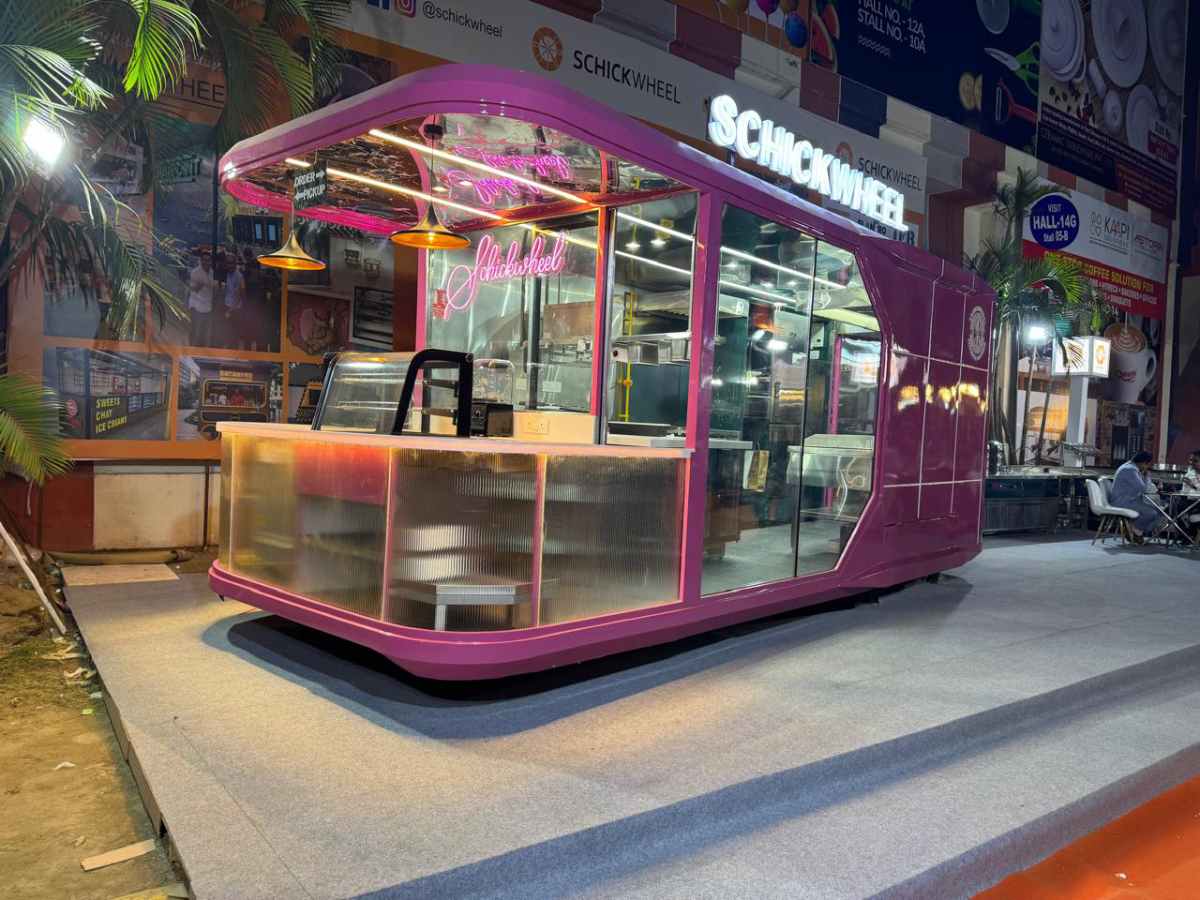Schickwheel: India’s streets are a vibrant, ever-moving feast, where food stalls and vendors define the culinary landscape. Yet, food trucks— despite their global success—have remained an afterthought, more makeshift than mainstream. Unlike cities such as New York and Los Angeles, where mobile kitchens have evolved into multimillion-pound enterprises, India’s food truck industry remains largely unstructured, its full potential unrealised.
Also read: International Women’s Day 2025: Women leaders share insights on strength, success, and change
A vision based street food
Delhi-based brothers Rishabh and Parth Sachdeva saw more than just an untapped market—they saw an opportunity to redefine it. What if food trucks in India weren’t merely an extension of street food but a scalable, structured, and safe business model?
Raised in a family deeply entrenched in the hospitality industry, the brothers grew up surrounded by the world of commercial kitchen manufacturing. Their father, a veteran in the industry, spent decades perfecting the craft of building kitchen equipment. While this environment instilled a natural affinity for food-related businesses, the brothers initially aimed to run a food venture of their own.
However, their father, ever pragmatic, voiced concerns about the risks of operating a food start-up. “That early rejection didn’t discourage us,” Parth, 32, recalls. “Instead, it sharpened our entrepreneurial instincts and forced us to think beyond just running a food business. It led us to a bigger realisation—there was a massive gap in the food truck industry.”
Armed with business-related degrees— Rishabh, a BCom (Hons) graduate from Shri Ram College of Commerce (SRCC), Delhi University, who later worked as an Audit Associate at KPMG, and Parth, a BCom (Hons) graduate from Shivaji College, Delhi University, followed by an MBA in Marketing from Symbiosis Distance Learning—the duo approached the market with a structured mindset.
“We realised that most food truck manufacturers were simply truck body fabricators with little knowledge of the food industry,” Rishabh, 29, says. “That’s when we spotted a gap in the market. Leveraging our background in hospitality, we saw an opportunity to shift towards manufacturing—something we had been doing for a while.”
Standardising an industry in flux
Today, Schickwheel is at the forefront of India’s mobile food revolution, having built kitchens on wheels for 23 states and four Union Territories. The company has helped redefine how food is prepared and served outside traditional restaurant spaces, seamlessly blending culinary expertise with engineering innovation. But navigating India’s vast and diverse market comes with its own set of challenges.
“India’s diversity extends beyond its culture—it reflects in its people and their unique requirements,” Rishabh explains. “The needs of a vendor selling tea in Rajasthan differ from those of a coffee entrepreneur in Bengaluru. Meeting these diverse expectations is what drives us.”
At Schickwheel, this philosophy has materialised in strikingly customised food trucks—some shaped like teapots, others like coffee cups—each a statement of brand identity and function.
The company’s rise to prominence was further accelerated by its appearance on Shark Tank India, where investors and audiences alike took note of its deep expertise in mobile kitchens. “Appearing on Shark Tank was a game-changer for us,” Parth reflects. “In India, food trucks are still a relatively new concept. Our presence on the show helped highlight their convenience and versatility, giving Schickwheel immense recognition and trust among customers.”
Challenging perceptions: The business of mobility
For many, the idea of a food business is still synonymous with a brick-and-mortar establishment—a place with a fixed location, a signboard, and a sense of permanence. Food trucks, by contrast, have often been perceived as a riskier, less stable venture. Schickwheel is working to change that narrative.
“We actually see it the other way around,” Rishabh argues. “Traditional restaurants require a much higher capital investment, and if the business doesn’t perform well, the losses can be significant. In contrast, food trucks offer a cost-effective alternative with lower initial investment and the flexibility to experiment with different locations.”
This shift in perception is already underway. Increasingly, established restaurant brands are exploring food trucks as an agile, low-risk expansion strategy. “Many major food brands are now stepping into the food truck space,” he points out. “The industry is evolving, and mobile kitchens are no longer just a trend—they’re becoming a legitimate, scalable business model.”
Also read: Dilli-6 and Zaiqa-e-Dilli offers a slice of Old Delhi for sophisticated palates
The future of mobile kitchen in India
As India’s appetite for convenience grows, so does the potential for mobile food businesses. “The future looks extremely promising,” Rishabh says. “Consumers are seeking convenient, affordable, and diverse dining options. Food trucks provide exactly that.”
Beyond serving busy urban consumers, mobile kitchens are increasingly playing a role in food festivals, corporate events, and even institutional catering. The lower overhead costs, coupled with a growing acceptance of on-the-go dining, position food trucks as a crucial part of India’s food service industry.
However, mobility presents its own challenges—chief among them, safety. “At Schickwheel, quality and safety aren’t just features; they are the foundation of everything we build,” Parth says. “We ensure that every detail is meticulously planned. Our food trucks have well-calibrated ventilation systems, are fully insulated to withstand harsh weather, and incorporate fire-resistant materials.”
Safety also extends to fuel management. “We incorporate a dedicated gas bank with multiple cylinders, pipelines, cut-off valves, and non-return valves,” he explains. “Every decision is guided by our deep industry knowledge, built over four generations of hospitality expertise.”
Sustainability and the push for green innovation
As food and transportation industries globally pivot towards sustainability, Schickwheel is also exploring eco-friendly innovations. “We’ve begun manufacturing food trucks on EV platforms, reducing our carbon footprint,” Parth shares. “We’re also actively exploring solar energy as a primary power source for our food trucks.”
This push aligns with India’s broader goals for green business solutions, and as the industry matures, sustainability will likely become a defining factor in mobile food entrepreneurship.
A journey shaped by Delhi’s food culture
Much of Schickwheel’s philosophy has been shaped by its home city—Delhi, a melting pot of food cultures and entrepreneurial energy. “Delhi has been instrumental in shaping me as an entrepreneur,” Parth says. “Its fast-paced lifestyle taught me the importance of adaptability and resilience.”
The city’s vibrant street food scene also provided critical insights. “Delhi’s food culture is defined by variety, accessibility, and authenticity,” he notes. “This made me realise the demand for high-quality food experiences that are both mobile and affordable.”
By creating food trucks and kiosks that enable culinary entrepreneurs to serve authentic dishes without the burden of heavy investments, Schickwheel is extending the spirit of Delhi’s street food scene to a national level.
Also read: Delhi: A Valentine’s escape to National Rose Garden
Lessons from the journey
Reflecting on his entrepreneurial journey, Parth emphasises the importance of prioritising quality and safety above all else. “Never compromise on these two pillars,” he advises aspiring food truck owners. “They are the foundation of a strong brand and long-term success in this industry.”
Today, Schickwheel stands as a testament to that belief. What started as a quest to launch a single food business has evolved into a movement that is reshaping India’s culinary landscape—one mobile kitchen at a time. “Now, when people think of food trucks,” the duo says with a smile, “they think of Schickwheel.”





